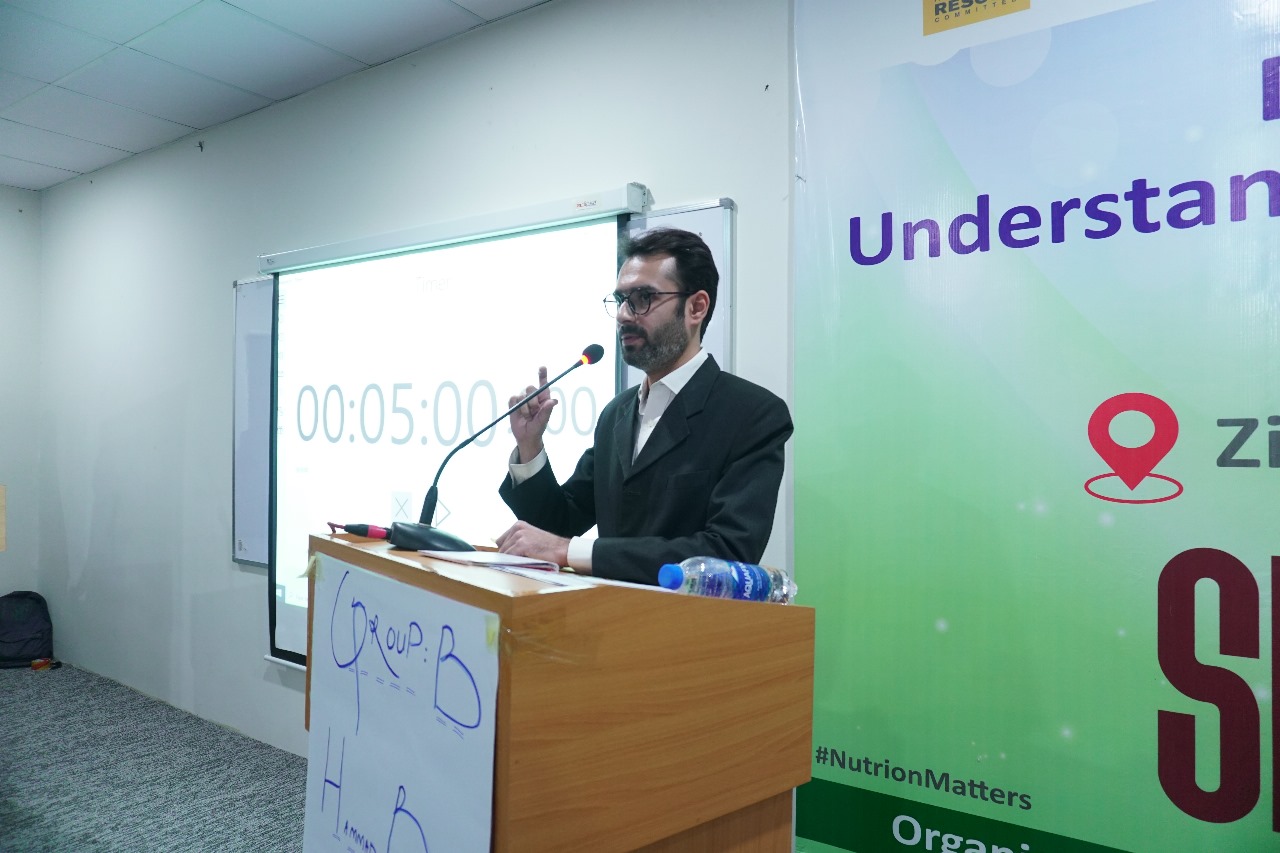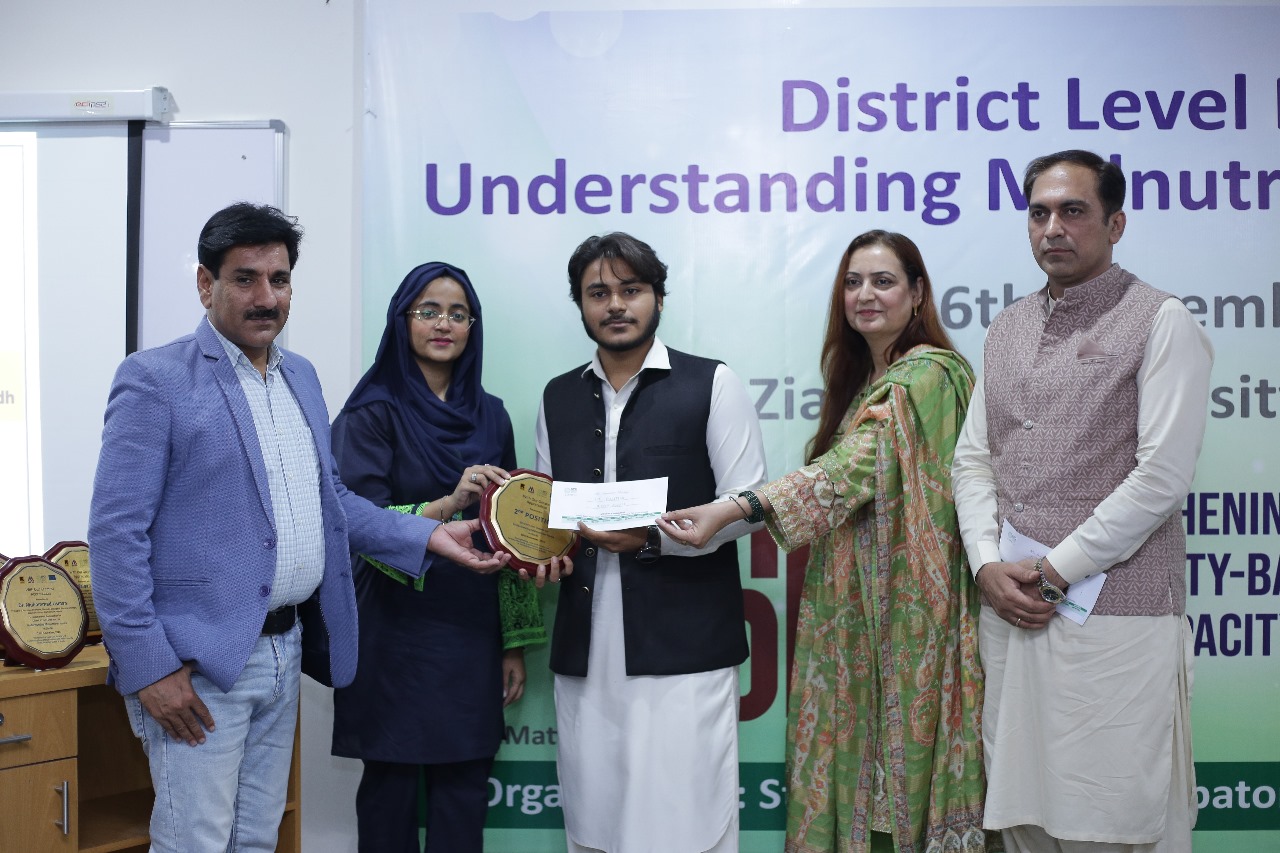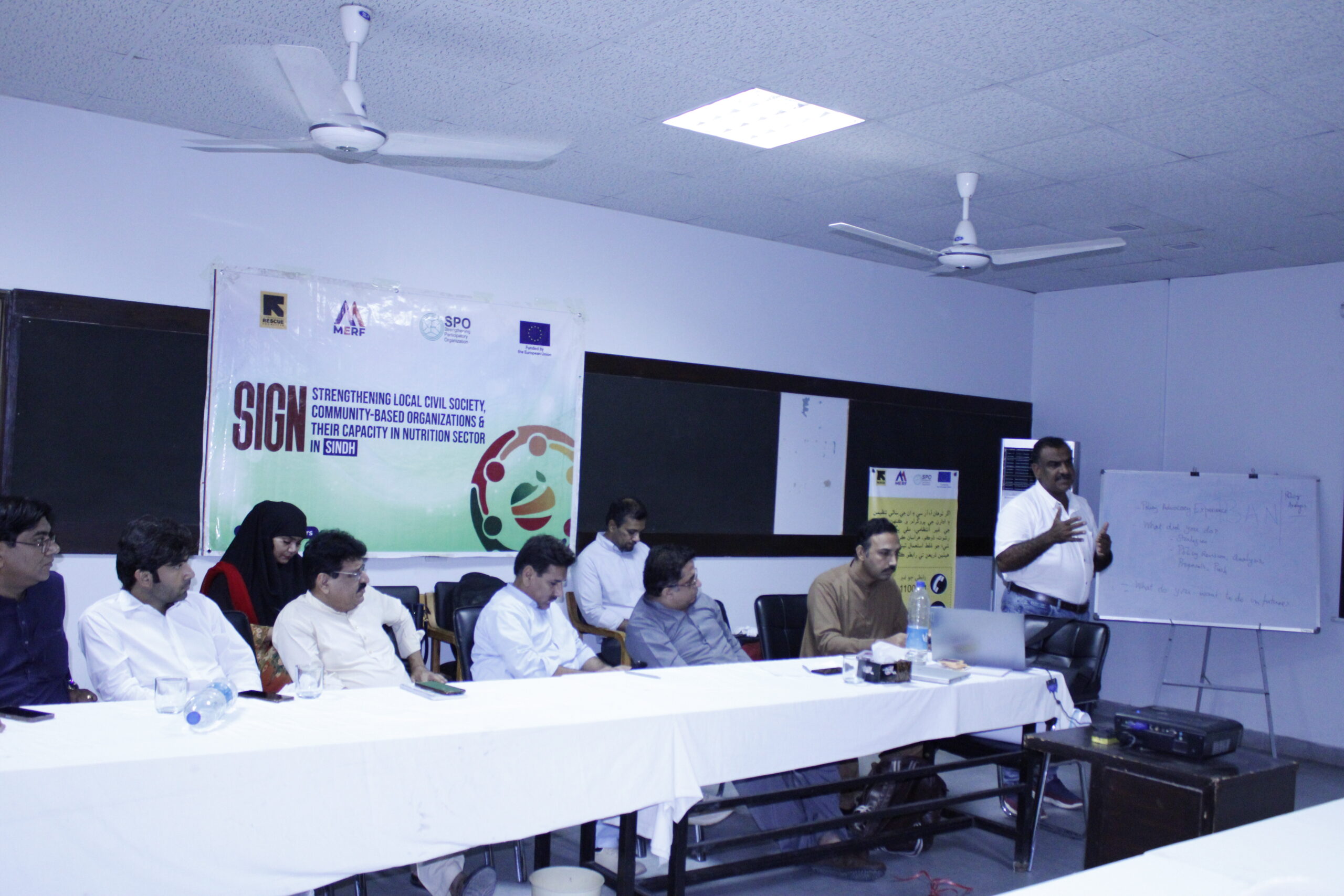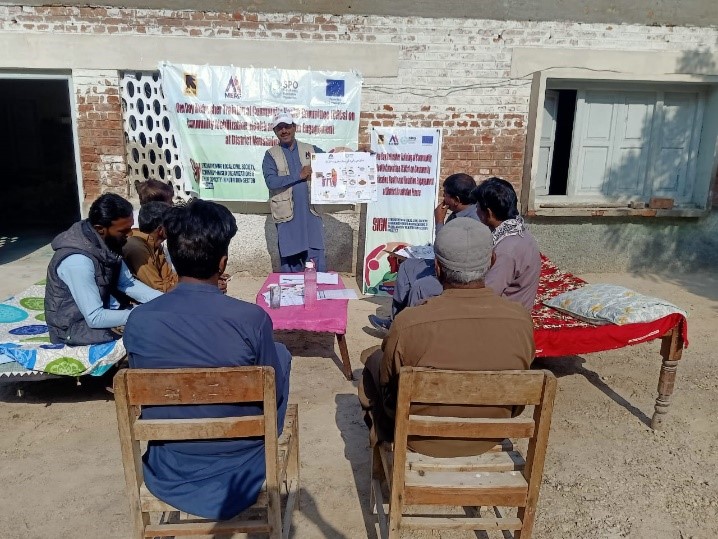
Concept Note: Activity 2.2.3 - Revitalizing and Capacity Building of Community Health Committees (CHCs)
Background:
Community Health Committees (CHCs) play a pivotal role in bridging the gap between healthcare facilities and communities, particularly in rural and underserved areas. These committees serve as a platform for community mobilization and engagement, allowing members to discuss, prioritize, and address health and nutrition advocacy issues. However, in many regions, CHCs either do not exist or lack the necessary capacity to effectively mobilize communities and engage with healthcare facilities.
To address this gap, the Revitalizing and Capacity Building of Community Health Committees (CHCs) initiative aims to establish or revitalize CHCs in selected cluster villages, empowering them to advocate for maternal and child health, improved healthcare services, and sustainable health outcomes.
This initiative will be implemented in 127 cluster villages across 5 districts, targeting approximately 900 individuals who will be trained as CHC members. The project will focus on capacity building for CHCs through one-day basic training in the first year, followed by refresher training in the second year. CHCs will serve as a forum for quarterly CHC meetings on health and nutrition issues and will actively participate in DCCN engagement to highlight challenges faced by referral beneficiaries at Outpatient Therapeutic Program (OTP) sites.
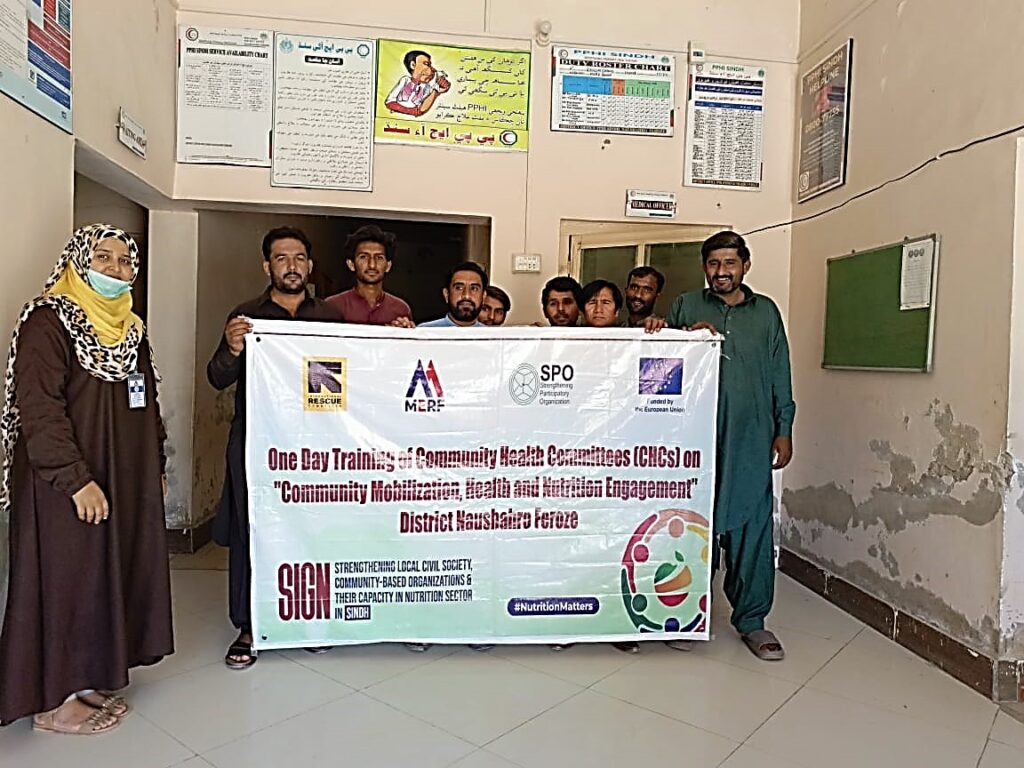
Objectives:
Establish or Revitalize CHCs: Form or revitalize 127 Community Health Committees (CHCs) in selected cluster villages to ensure active community participation in health and nutrition advocacy.
Capacity Building: Train 900 CHC members in community mobilization and engagement, effective discussion of health and nutrition issues, and collaboration with healthcare facilities.
Community Advocacy Platform: Create a platform for community members to advocate for improved health services, particularly for maternal and child health.
Quarterly CHC Meetings: Conduct quarterly CHC meetings to discuss health priorities, problem-solving, and document proceedings for sharing with relevant stakeholders.
DCCN Engagement: Enable CHC members to participate in DCCN engagement meetings and highlight challenges faced by referral beneficiaries at OTP sites.
Key Activities:
Establishment and Revitalization of CHCs:
127 Community Health Committees (CHCs) will be established or revitalized in selected cluster villages across 5 districts.
Each CHC will consist of approximately 7-8 members, totaling 900 individuals.
The selection of CHC members will be done in collaboration with target Civil Society Organizations (CSOs) and local community leaders.
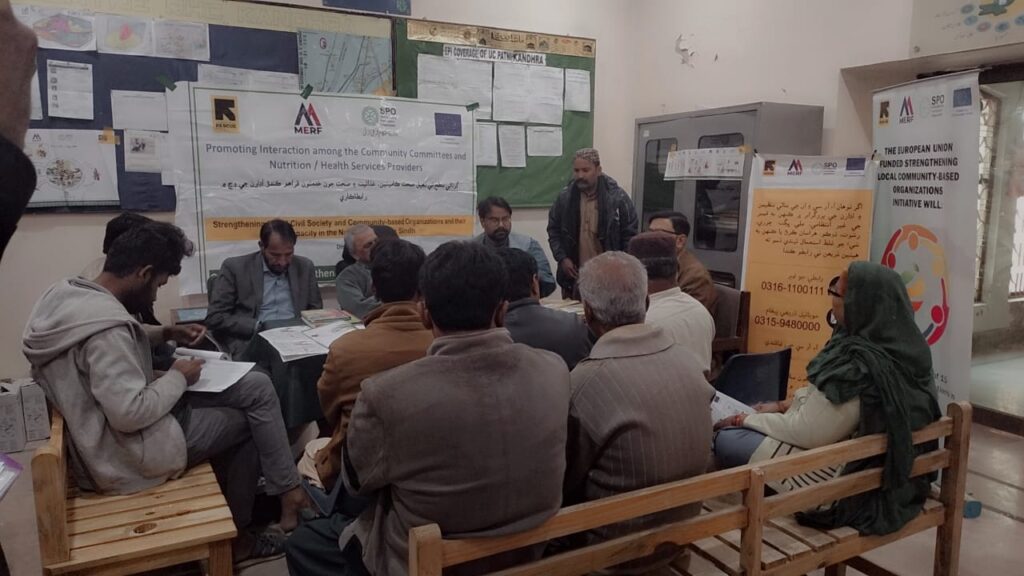
Training and Capacity Building:
A one-day basic training will be conducted for all 900 CHC members in the first year, covering topics such as community mobilization and engagement, collaboration with healthcare facilities, and health and nutrition advocacy.
Refresher training will be organized in the second year to reinforce knowledge and address emerging challenges.
Training sessions will include interactive discussions, case studies, and role-playing exercises to enhance practical skills.
Quarterly CHC Meetings:
CHCs will hold quarterly CHC meetings to discuss maternal and child health priorities, problem-solving, and community advocacy.
The proceedings of each meeting will be documented and shared with relevant stakeholders, including healthcare facilities and district authorities.
CHCs will focus on antenatal care, delivery services, and screening and referral activities for malnutrition prevention.
Engagement with DCCN:
CHC members will participate in DCCN engagement meetings to highlight challenges faced by referral beneficiaries at OTP sites.
This engagement will ensure that community-level issues are brought to the attention of district-level decision-makers, fostering a more responsive healthcare system.
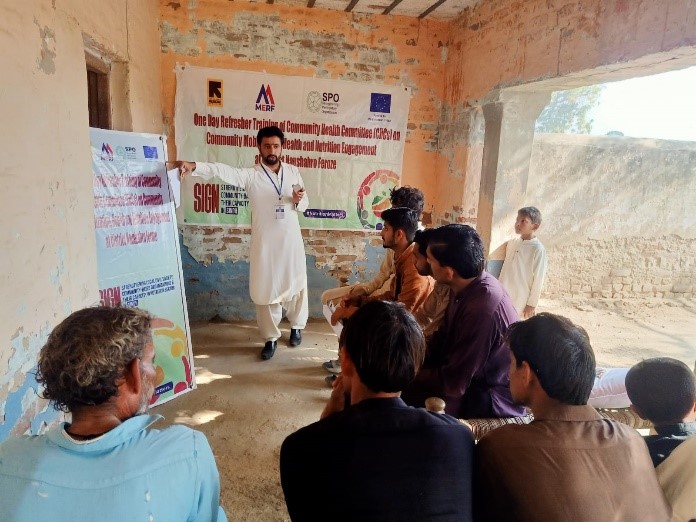
Two-Way Exchange Visits:
25 two-way exchange visits will be organized across the 5 districts to facilitate cross-learning and sharing of best practices among CHCs.
These visits will enable CHC members to learn from successful models in other villages and apply these insights in their own communities.
Innovative Activities:
CHCs will assist in organizing community events such as village fairs, World Women’s Day, World Health Day, and 16 Days of Activism to raise awareness about maternal and child health and sustainable health outcomes.
CHCs will support screening and referral activities, particularly in remote areas where access to healthcare services is limited.
CHCs will identify and advocate for the most underserved areas where screening and referral activities and healthcare services are urgently needed.
Expected Outcomes:
Strengthened CHCs: 127 CHCs will be established or revitalized, with 900 members trained in capacity building for CHCs, community mobilization and engagement, and health and nutrition advocacy.
Improved Community Engagement: CHCs will serve as a platform for community members to actively participate in maternal and child health discussions, leading to improved health outcomes.
Enhanced Collaboration: Quarterly CHC meetings and DCCN engagement will foster stronger collaboration between communities, healthcare facilities, and district authorities.
Increased Awareness: Community events and advocacy campaigns will raise awareness about maternal and child health, malnutrition prevention, and the importance of healthcare services.
Better Referral System: CHCs will play a key role in screening and referral activities for malnourished children, ensuring timely access to care.
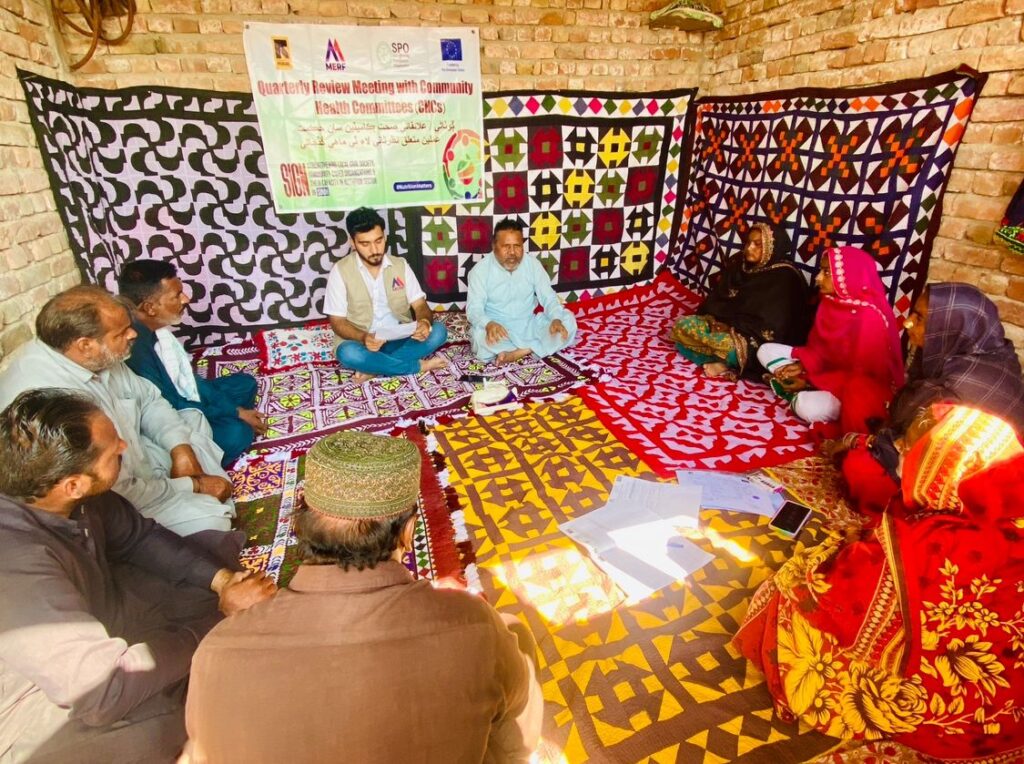
Conclusion: The Revitalizing and Capacity Building of Community Health Committees (CHCs) initiative is a critical step toward empowering communities to take ownership of their health and nutrition needs. By establishing or revitalizing CHCs, providing comprehensive capacity building for CHCs, and fostering collaboration with healthcare facilities and district authorities, this initiative will create a sustainable health outcomes platform for community advocacy and problem-solving. Through quarterly CHC meetings, two-way exchange visits, and innovative activities, CHCs will play a vital role in improving maternal and child health and nutrition outcomes in the target districts, particularly for women and children.


